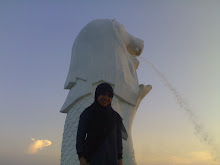literature
Literature.
According to my dictionary ‘literature’ is a term defining everything from leaflets giving information on haemorrhoids to War and Peace. Even a Blair speech is literature, though a form of it somewhat overburdened by ellipses and bathos. But the first dictionary meaning admits the word commonly refers to ‘poetry, novels, essays etc’, so are all these always literature? No, apparently, because there is another usage of the word that seems to define it by what it is not.
The wider literati intelligentsia – a diverse collection of self-promoting critics and would-be academics – feel it their business to decide what to include under this title and what to exclude. Why they feel they have this right is debateable. But then people of a similar stripe denigrated Charles Dickens for his penny dreadfuls, and William Shakespeare for catering to plebs who just wanted plays containing plenty of royalty, murder, sex and ghosts. So we have this thing I will italicize as literature, and what a strange beast it is.
Genre fiction is not such a beast until sufficiently aged (perhaps buried in peat and dug up again). Those books that are popular and show no sign of going away, are only reluctantly accepted, because to the literati intelligentsia ‘popular’ equals ‘not-literature’. Books moving into the literature category, popular or otherwise, undergo a transformation. In long turgid dissertations they become satirical, noir, surreal, allegory (insert favourite pretension), and the clunky robots, magic swords or smart-talking detectives blowing away bad guys are, with some embarrassment, shuffled off stage. Thus, The Lord of the Rings is a political allegory of World War II and Sauron is quite obviously Hitler; The Sirens of Titan is a superb satire favoured by neophyte academics, but the less said about the Tralfamadorian on Titan the better; and Raymond Chandler ‘leads writers of the twentieth century’ with his ‘brutal noir’ and ‘inimitably literary style’. It would be nice if those writing such dissertations occasionally came out with an honest statement like, “Actually, I really liked that book, but I’m a pretentious git so I’ve got to dress it up in what I consider to be more presentable clothing and work very hard on its diction.”
This is a situation to which those writing fiction in the SFF world are quite accustomed (hence Pratchett’s tongue in cheek statement about being ‘accused of literature’), but it is unfortunate that our genre is not immune, internally, to the same snobbery directed against it, for it is merely a microcosm of the entire writing world and contains its own self-styled judges. In the not-literature category they lump anything by E. E. ‘Doc’ Smith, Edgar Rice Burroughs (not sufficiently peat-aged yet), Robert Heinlein (wrong politics) and anything unashamed of being definitely science fiction or fantasy, and in which the writer aims to entertain an audience rather than demonstrate personal brilliance. In the literature category they give us the boredom of the New Wave (in reality just a bigger and noisier version of similar waves spreading their flotsam over the shores of SFF now), various other versions of, “Well, not a lot happened, but I managed to write a novel about it,” and the products of those writers so enamoured of the literature label they produce stunning prose and mind-numbingly deep insights into the human condition, while usually forgetting essential story. The literature/not-literature classifications are all very very subjective and in need of seasoning with large pinches of salt.
But how should you identify excellence? How then do you know what is good? Well, pick it up and read some of it, then if you want to carry on, make your own decision when you finally close it. How, after that, do you identify great literature? Simple really: you bury it in peat for a couple of centuries then see if it is still recognised when dug up. In other words you don’t, posterity does. I suspect today’s literati intelligentsia would be horrified at the rich strata of J K Rowling, Stephen King and Terry Pratchett that will be revealed. But by then, ensuing generations of critics and academics will have produced reams of turgid prose about the work of those writers, without too much mention of gnomes, wizards or vampires.








0 Response to "literature"
Posting Komentar